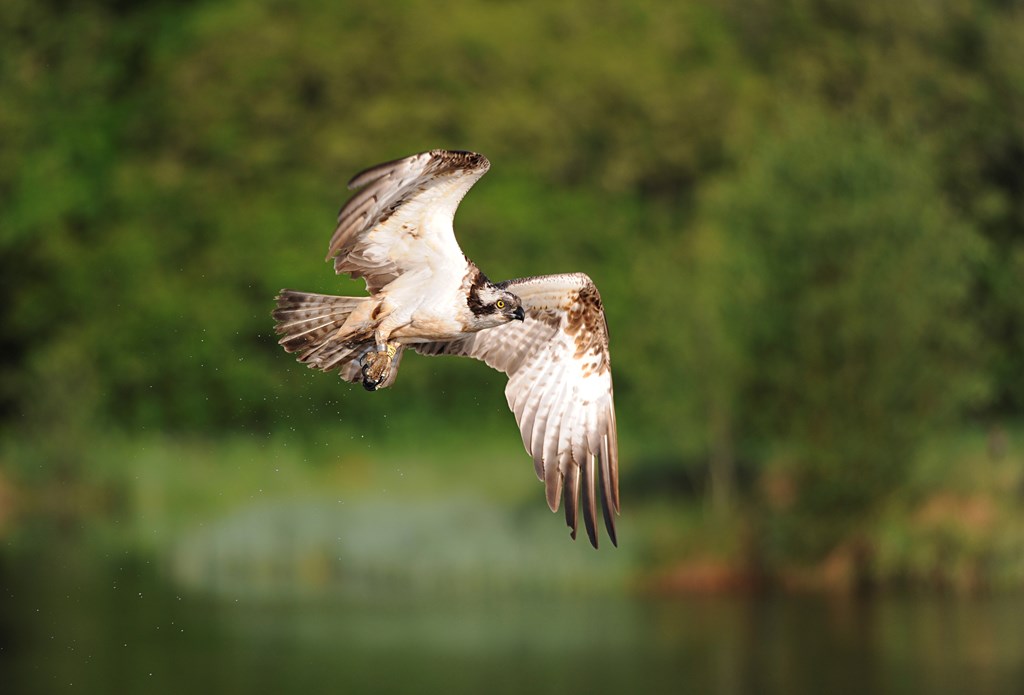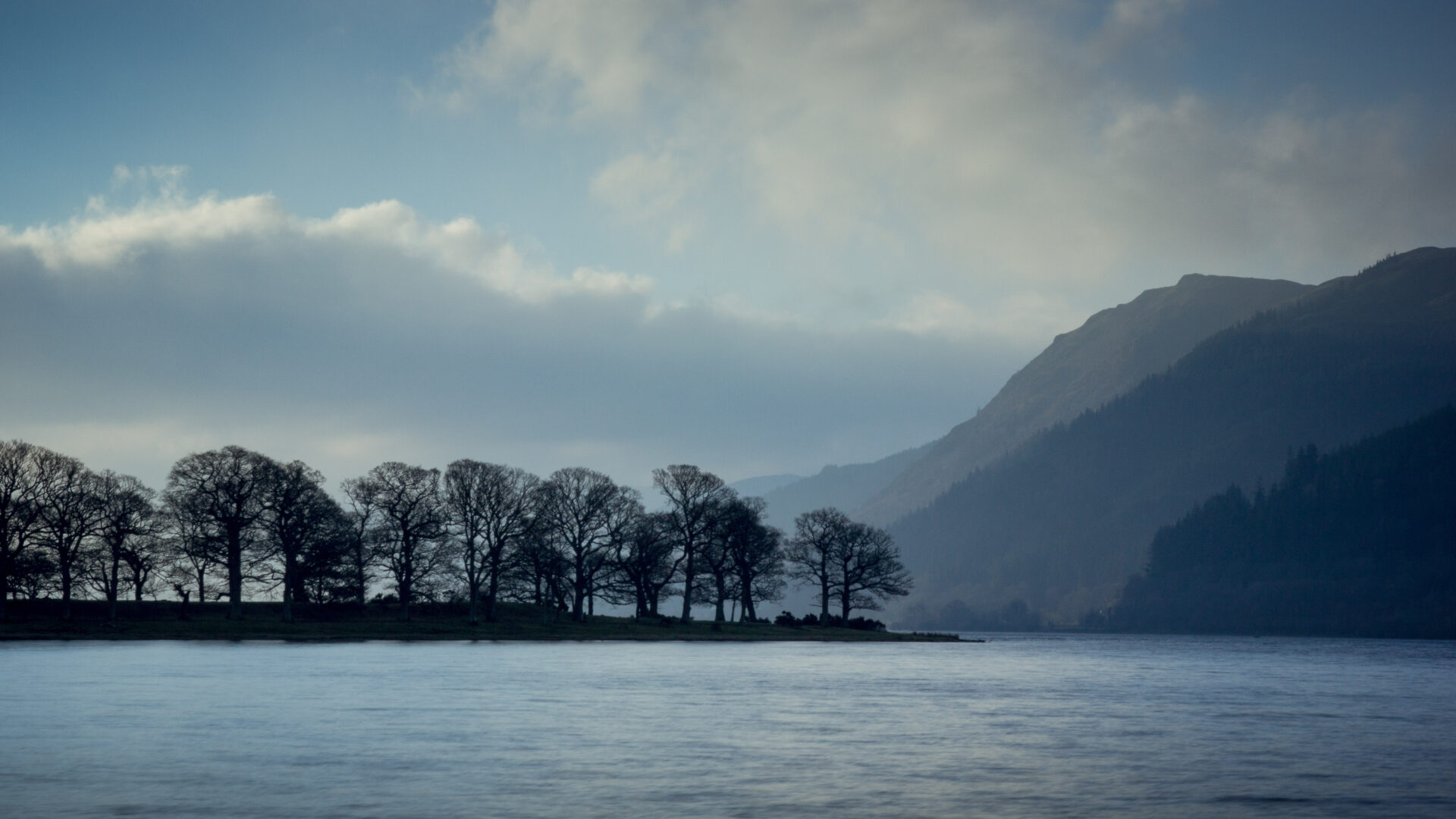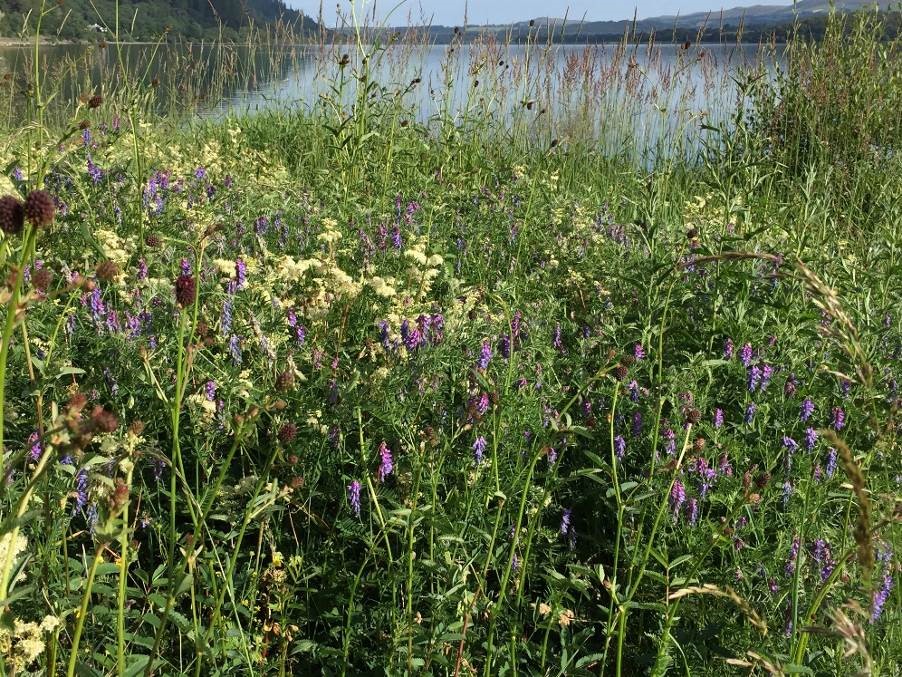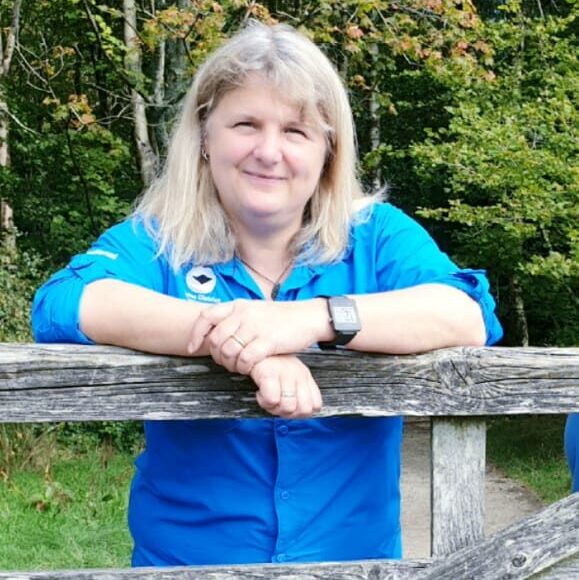
Discover: Bassenthwaite Lake – the Lake District’s haven for nature and people alike
-
Date posted: 26/02/2025
-
Time to read: 3 mins
The Lake District’s fourth-largest body of water is also one of its least developed and most nature-rich places. Cath Johnson describes how the National Park takes care of the beautiful Bassenthwaite Lake and its surroundings.
I’m Cath Johnson, the Natural Environment Adviser for the Lake National Park Authority. I’ve worked for the Lake District National Park for almost 12 years, and until 2021, I was the Area Ranger covering the north of the Park.
My role involves providing specialist knowledge and advice about the natural environment and land management. I work alongside many different organisations and people living, working in and managing the National Park. This means I also get to visit some of the most beautiful and important wildlife sites in England.
One of the sites I am privileged to be involved with is Bassenthwaite Lake.
Bassenthwaite Lake lies in the north-west of the Lake District National Park in the valley of the river Derwent, three kilometres north-west of Keswick. It is the fourth-largest lake in the Lake District, but is much quieter than lakes of a similar size, and less developed. It is the only ‘true’ lake (albeit in name) in the Lake District, the others being ‘meres’ or ‘waters’.

As well as being owned by the National Park Authority, it is a National Nature Reserve (NNR), Site of Special Scientific Interest and part of the River Derwent and Bassenthwaite Lake Special Area of Conservation.
A haven for wildlife
I first discovered Bassenthwaite Lake when I first moved to Cumbria in 2009. I felt an immediate connection having previously managed lakes or “broads” in Norfolk as a conservation officer with the Broads Authority. I would never have believed back then that a few years later I would be part of a team helping to protect and manage the lake.
The lake supports both nationally and internationally important populations of aquatic plants and fish including floating water plantain, Atlantic salmon and vendace. Vendace is the UK’s rarest fish and is only found naturally in two lakes in England, Derwent Water and Bassenthwaite Lake.
Unlike many lakes in the Lake District, Bassenthwaite has extensive sections of more-or-less natural lakeshore vegetation and these support nationally important invertebrates, plants and birds. An early morning walk along the lake shore can be rewarded with glimpses of thread rush, globe flower, little ringed plover, reed bunting and reed warblers.

If lucky you may observe the majestic osprey hunting over the lake for fish. Until 2001 there had been no record of nesting osprey in England since the 1830s, until a pair arrived in the Lake District and successfully started breeding near Bassenthwaite Lake.
Balancing public access and protecting nature
Bassenthwaite has always been a great place for our visitors and communities alike to enjoy water activities, such as fishing, kayaking, paddleboarding, and swimming but this popularity can also, inadvertently, put pressure on some of the sensitive habitats and wildlife.
When I visit I can’t help but notice areas of trampled vegetation and erosion from visitors eager to reach the water’s edge on busy, hot summer days. Because of this, we have been investigating ideas on how we can protect the lakeshore areas whilst better educating and encouraging the visiting public to visit the lake more responsibly.

Last April we launched our new management plan for Bassenthwaite, outlining how we intend to manage the site over the next five years with the resources available to us. As NNR managers we work closely with Natural England to contribute towards nature recovery while providing opportunities for public enjoyment and quiet recreation. We also share knowledge and research, and involve communities and stakeholders in the management of the lake and its surroundings.
Evidence has shown that wildlife-rich environments benefit both physical and mental health. A visit to the lake, including a quick swim, is a sure way of leaving behind the stresses and strains of work and life. I always come away feeling re-charged and motivated by new ideas towards helping to manage the lake sustainably for people and nature.
My hope for time to come is that Bassenthwaite Lake continues to host a wealth of wildlife and habitats that provide the important wellbeing benefits that people come to experience. But perhaps more importantly is to ensure that people feel a strong sense of pride and ownership, especially the younger generation, to guarantee the lake is loved and cared for long into the future.
There is no public right of navigation on Bassenthwaite Lake and all lake users require a permit. For more information on the management plan and how to purchase a permit please visit the Lake District National Park website.

By Cath Johnson
Cath is the Natural Environment Adviser for the Lake National Park Authority